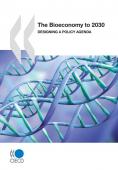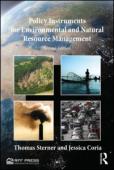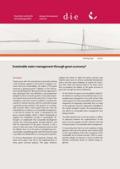
The biological sciences are adding value to a host of products and services, producing what some have labelled the “bioeconomy”. From a broad economic perspective, the bioeconomy refers to the set of economic activities relating to the invention, development, production and use of biological products and processes. If it continues on course, the bioeconomy could make major socioeconomic contributions in OECD and non-OECD countries. These benefits are expected to improve health outcomes, boost the productivity of agriculture and industrial processes, and enhance environmental sustainability. The bioeconomy’s success is not, however, guaranteed: harnessing its potential will require coordinated policy action by governments to reap the benefits of the biotechnology revolution.
This new report reveals, for the first time, data on resource use and resource efficiency for all countries of the world over three decades, from 1980 – 2008. The data covers the global, continental and country level, featuring illustrative case studies. The report evaluates the performances of different countries, highlighting the critical issues of current trends in resource use.
The report addresses three main issues:
1. Patterns of material extraction, trade, consumption and resource productivity in different world regions and countries;
2. Connections between material use and indicators of economic and social development;
3. Links between material use and selected major environmental problems, such as carbon emissions, land use change and water use.
This report evaluates the requirements for an assessment of climate change impacts on agriculture to guide policy makers on investment priorities and phasing. Because agriculture is vital for national food security and is a strong contributor to Brazil's GDP growth, there is growing concern that Brazilian agriculture is increasingly vulnerable to climate variability and change. To meet national development, food security, climate adaptation and mitigation, and trade goals over the next several decades, Brazil will need to significantly increase per area productivity of food and pasture systems while simultaneously reducing deforestation, rehabilitating millions of hectares of degraded land, and adapting to climate change. There is inadequate data to accurately model projected climate challenges facing Brazil. The report concludes that key integrated and linked interventions are needed in the short term to significantly improve currently available assessments of climate change impact on Brazilian agriculture and to guide policy makers with the priorities and phasing of needed investments.


